Chinese New Year, Mid-Autumn Festival, and Dragon Boat Festival may be the most widely celebrated festivals in Hong Kong. However, there are many more commemorative holidays throughout the year when people observe the birthdays of significant deities and/or practice traditions that originated in ancient legends. These times are associated with specific ritual practices, through which Hong Kong people consolidate and bring to life their cultural identity. Most of Asia has used the lunar calendar throughout history – keep track of when we celebrate these festivals on the Gregorian calendar in 2024 and 2025.
Lunar New Year (農曆新年) — 10 February 2024
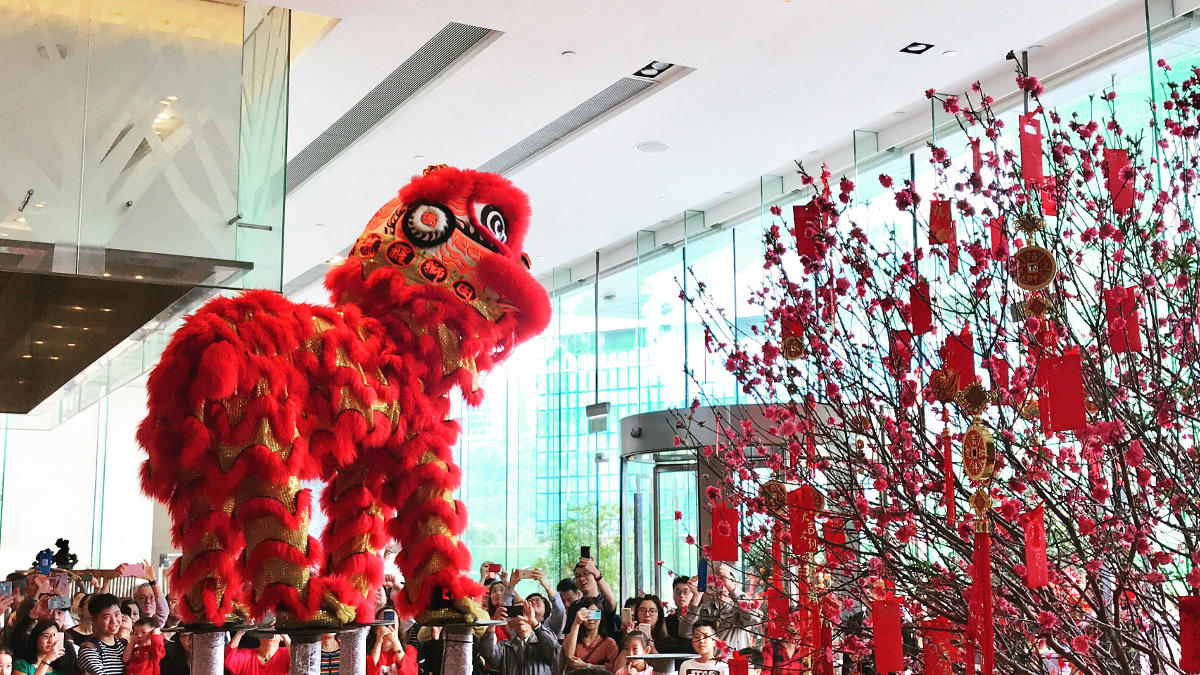
Easily the most celebrated holiday, Chinese New Year (a.k.a. Lunar New Year) marks the beginning of the new year in the lunar calendar. It’s a time for fresh beginnings as it welcomes spring. Usually falling in late January or early February, the date is associated with auspicious beliefs. For instance, eating customary leen go, a sweet glutinous rice cake, represents obtaining a higher position in life in the new year. At this time, there are dragon dances in the street and families reunite, feast, and follow the tradition that married couples gift red pockets filled with money to those who are younger than them or not married.
Lunar New Year Fair — Days leading up to Lunar New Year
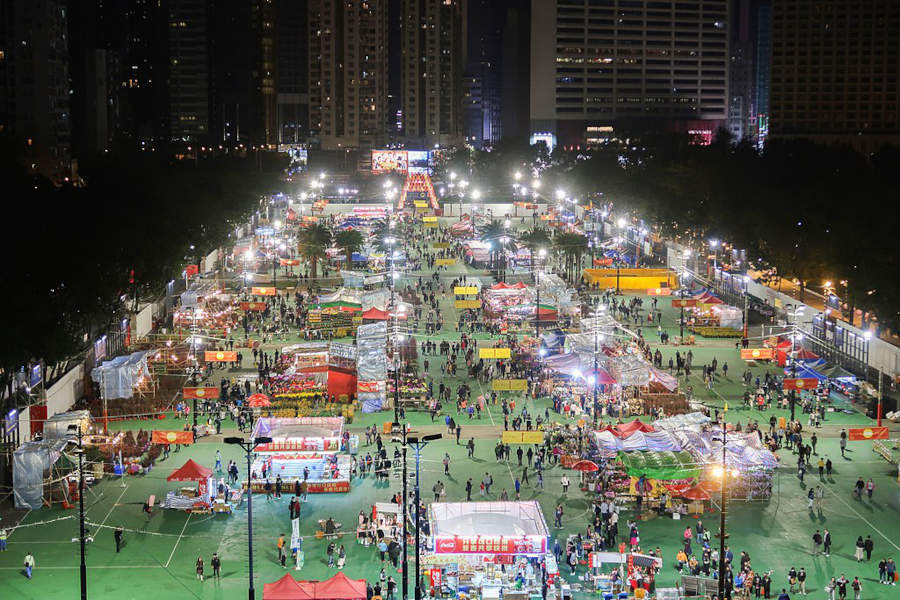
Also known as the Chinese New Year flower market, the Lunar New Year Fair takes place just a few days before Chinese New Year to kickstart the holiday. Locals gather to shop for fresh plants to prepare for the upcoming Chinese New Year, most notably mandarin fruit plants that symbolize wealth and good fortune. Flowers are bought to represent different things that all point to abundance and prosperity. Among these plants and arrays of flowers are stalls selling food fit for the holiday, like tong yuen and candy. Two of the most popular sites in Hong Kong to host this fair are at Victoria Park and Fa Hui Park.
Birthday of Che Kung (車公誕) — 11 February 2024
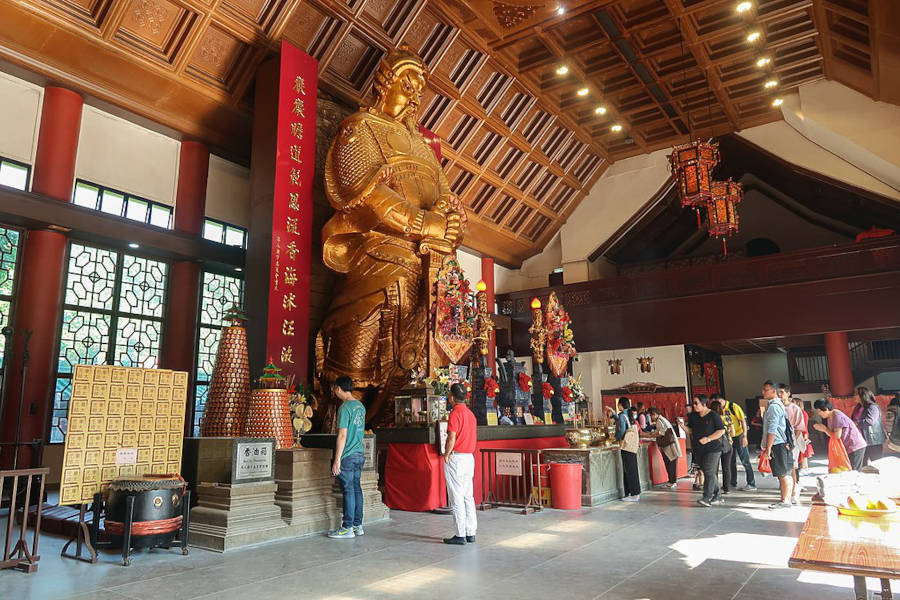
Che Kung was a revered military commander from the Song dynasty. He protected the last emperor of the Song Dynasty from Mongol invaders as they escaped to Hong Kong; hence, he was proven loyal to those high up on the hierarchy. People visit Che Kung Temple in Shatin to celebrate his birthday and worship him on the second day of the first lunar month. There’s a wheel of fortune inside the temple, which when spun three times blesses the spinner with good fortune. Worshippers also light incense sticks, burn paper money, and offer fruit as a token of respect.
Chinese Lantern Festival (元宵節) — 24 February 2024
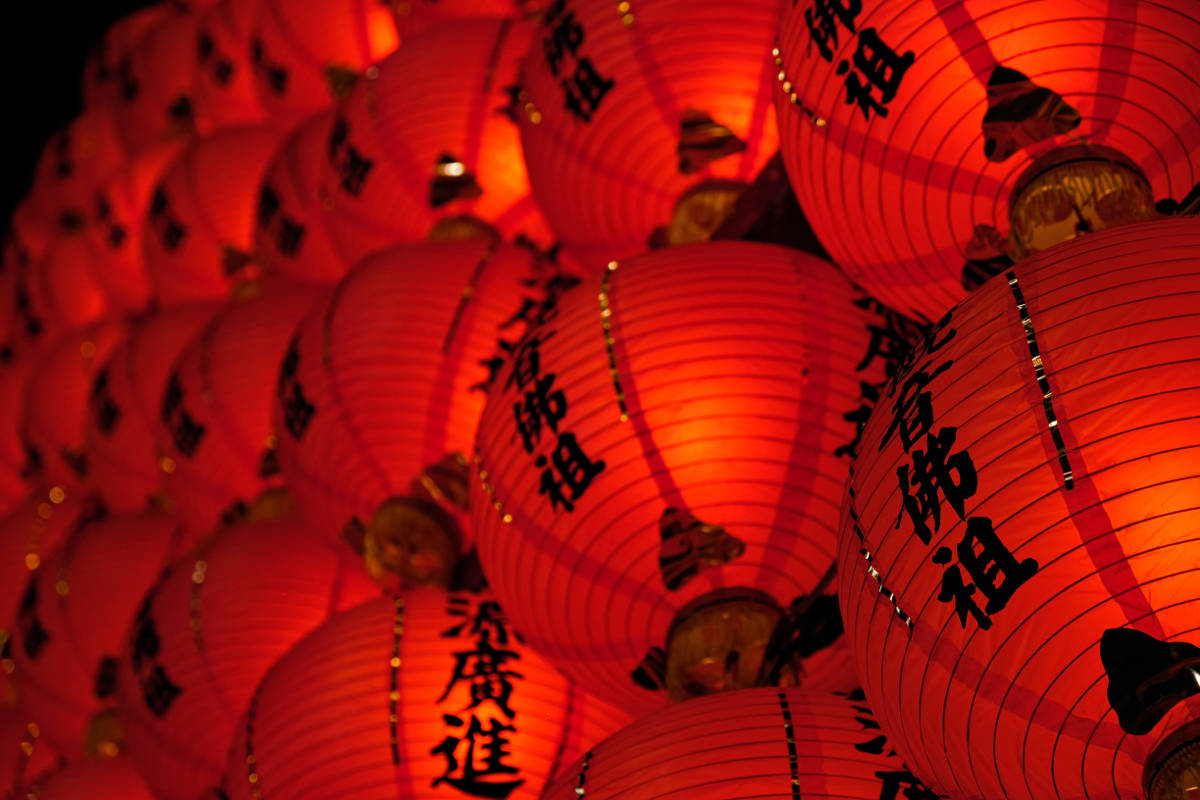
Celebrated on the last day of the two-week Chinese New Year holiday, Chinese or Spring Lantern Festival marks the first full moon of the year and welcomes spring. Red lanterns are lit up across the city as people delight in tong yuen, sweet glutinous rice balls with sweet fillings like red bean and sesame paste. This practice came from the Han Dynasty when one emperor wanted to pay respect to Buddha, ordering lanterns to be lit throughout the palace. This Hong Kong festival is celebrated synonymously with Chinese Valentine’s Day as young men woo the hearts of a special someone.
Kwun Yum Treasury Opening Festival (觀音開庫) — 6 March 2024
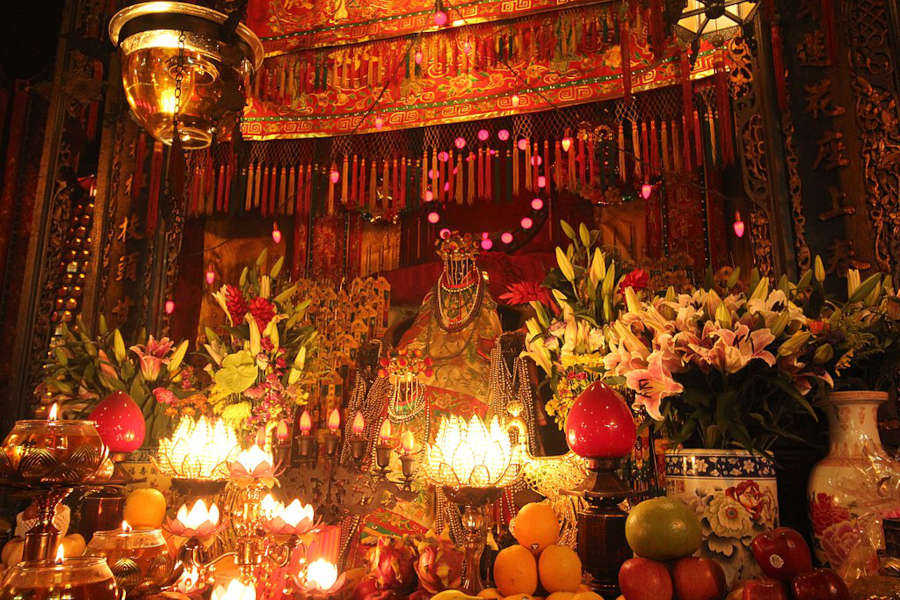
Towards the end of the first month of the lunar year, masses gather at temples to worship the goddess Kwun Yum, seeking good fortune. This is a time when people believe Kwun Yum, also called Guan Yin, opens her treasury. Thus, people pay HK$45 for a blessed red packet with a lucky charm inside to carry for the rest of the year. Some people also walk away with nuts and candies inside the packets to eat. The Kwun Yum Temple in Hung Hom is the most prominent spot where hundreds of people gather to ‘borrow’ a sum of money from the divine goddess. Although you can start lining up the night before, the auspicious hour to visit is said to be between 3pm to 5pm.
Hung Shing Festival (洪聖誕) — 22 March 2024
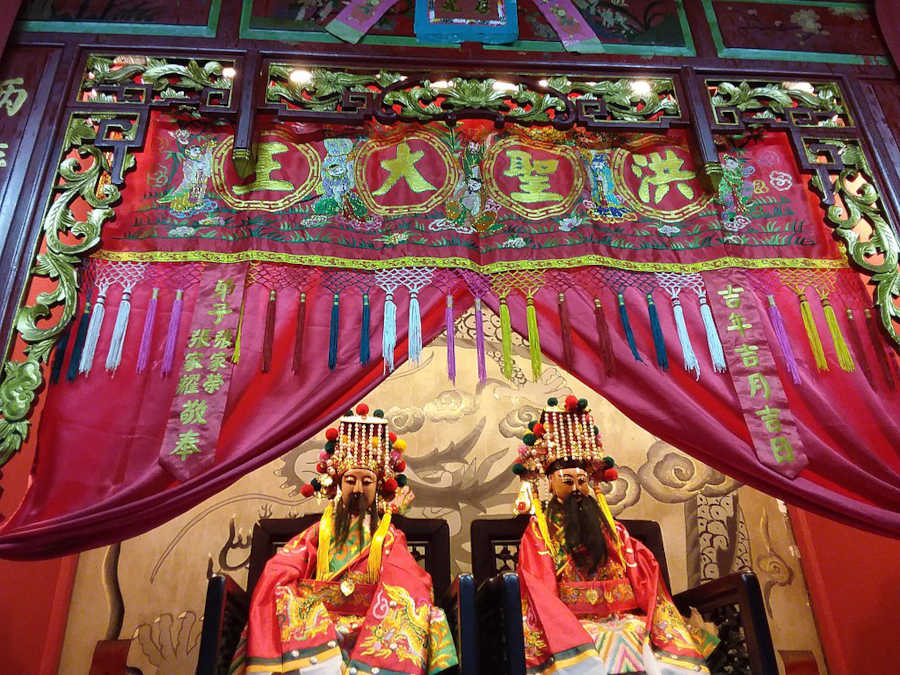
A recognized governor from the Tang Dynasty, Hung Shing was a scholar distinguished in the fields of astronomy, geography, and mathematics. He founded an observatory to forecast weather, which helped those whose livelihoods depended on weather conditions; most notably, fishermen and sea traders. Hung Shing would bless these tradesmen with safe travels and a good harvesting season. It’s also believed he saved many lives from nature’s treacherous storms through his innovations. Nowadays, people visit temples to honour him, with Ap Lei Chau’s Hung Shing Temple being the liveliest. Festivities include traditional dragon and lion dances, Chinese opera, and small games.
Ching Ming Festival (清明節) — 4 April 2024
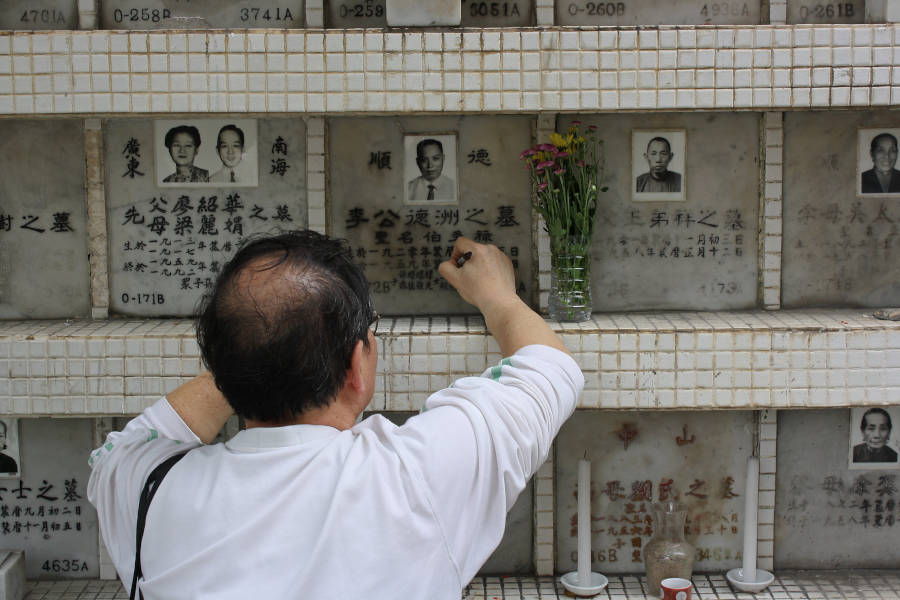
Known as tomb sweeping day, Ching Ming Festival is a day when families visit grave sites to commemorate passed loved ones and ancestors. Out of respect, families would clean away any weeds that have grown around the tombstone, lay fresh flowers, light incense sticks, and make offerings in the form of fresh fruit and buns. The family members also eat at the tomb, eating only cold foods. This Hong Kong holiday goes back roughly 2,500 years and occurs in early April. Taking advantage of this late spring day, many people would stay outdoors or venture off to parks to embrace the new season and fresh beginnings that come with it.
Tin Hau Festival (天后誕) — 1 May 2024
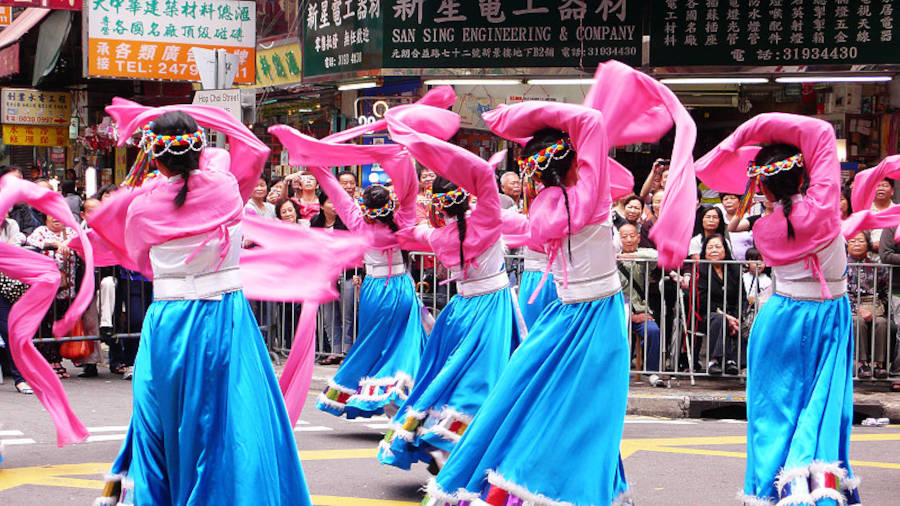
Tin Hau Festival is celebrated to honour the birthday of the goddess of the sea. Perhaps the most colourful and rambunctious of the holidays, this day includes throngs of people parading down streets beating and dancing to the sound of drums and cymbals. Hong Kong boasts over 60 temples dedicated to Tin Hau, so it’d be hard to miss the spectacle. Lion and dragon dances take place and towering floral arrangements are created as tribute to the goddess. Tin Hau is cherished among fishing villages especially, as the maritime industry has played a huge factor in Hong Kong people’s livelihood.
Buddha’s Birthday (佛誕) — 15 May 2024
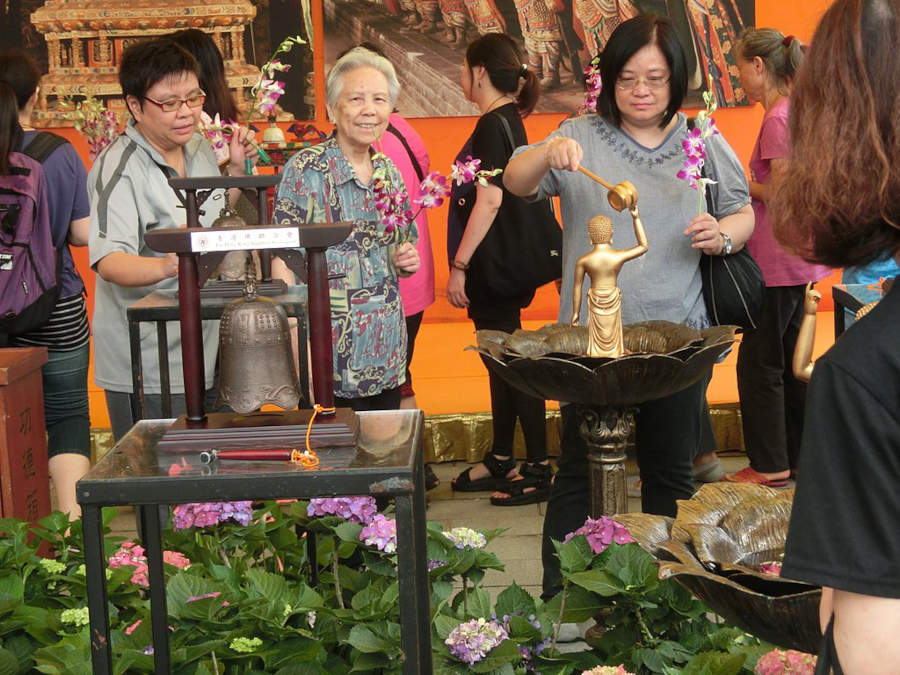
A Buddhist tradition, this day pays respect to the birth of Prince Siddhartha Gautama who founded Buddhism. Buddhist temples and monasteries across the city celebrate by lighting candles and lanterns and making offerings. The most important traditional practice on this day involves a cleansing ritual that’s symbolic of purifying one’s soul. People take a ladle of water and pour it over a statue of Buddha, along with lighting incense sticks and bowing to him. The prime spot to celebrate this day is at Po Lin Monastery on Lantau Island where the grand Big Buddha statue sits.
Cheung Chau Bun Festival (長洲太平清醮) — 12-16 May 2024
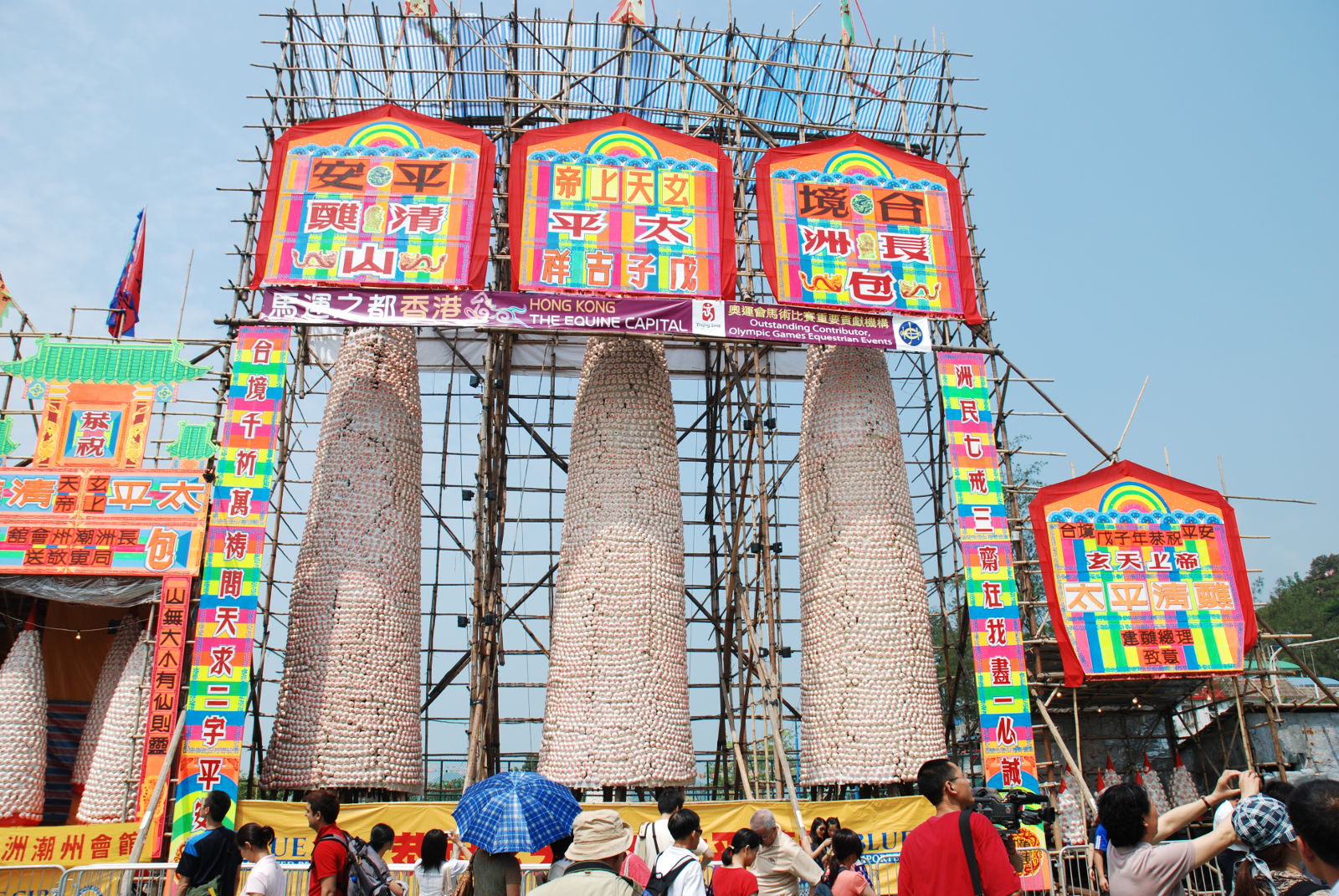
A Taoist holiday celebrated at roughly the same time as Buddha’s birthday, Cheung Chau Bun Festival is a holiday celebrated at, as you may have guessed, Cheung Chau island. Celebrations last for a few days, marking the end of a plague in historical times, with buns and vegetarian food being shared and eaten. On the third day of festivities, a boisterous parade is held and bun towers are built using bamboo that gets enwrapped with steamed buns. During this peak of the festival, a separate tower built using a metal frame with artificial buns is made for the Bun Tower Climbing competition to see who can climb to the top the fastest.
Birthday of Tam Kung (譚公誕) — 15 May 2024
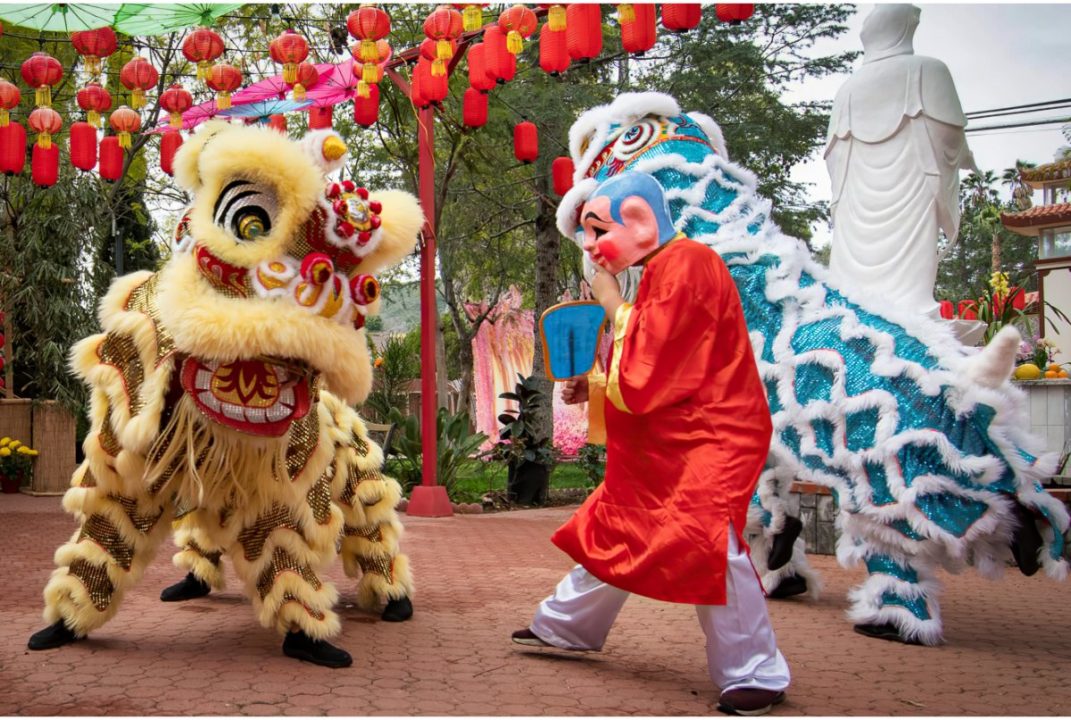
Sharing the same birthday as Buddha, Tam Kung is a revered deity for his gifts as a young boy. Hailing from the Guangdong Province, he had the power to control winds and storms at the age of 12, earning him the name Lord Tam the Sea God and being worshipped among fishermen. He also aced the secret of remaining young forever, which is why any statue of depicts an old man with the face of a boy. On this day, people march down the streets performing martial arts and even the lion dance in honour of Tam Kung.
Dragon Boat Festival (端午節) — 10 June 2024
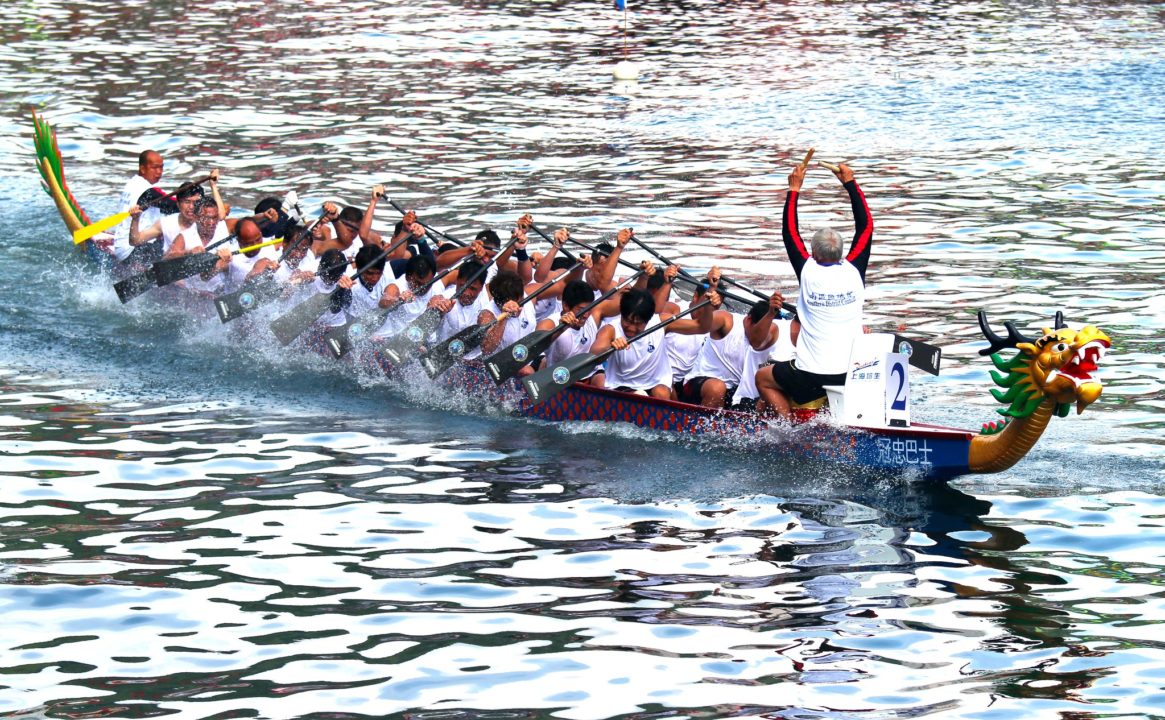
A festival fuming with competition, the Dragon Boat Festival highlights the life of Qu Yuan, who was a patriotic poet and loyal subject to the king of the Chu state. His poems showcase his love and devotion to his country. He lived in trialling times, with his state’s military defeat prompting him to commit suicide via drowning. Upon his devastating death, locals paddled boats in the river to the beat of drums to ward off evil spirits. This paved the way for the dragon boat races we have today. Eating sticky rice dumplings wrapped in leaves is also a custom on this day.
Birthday of Kwan Tai (關帝誕) — 29 July 2024
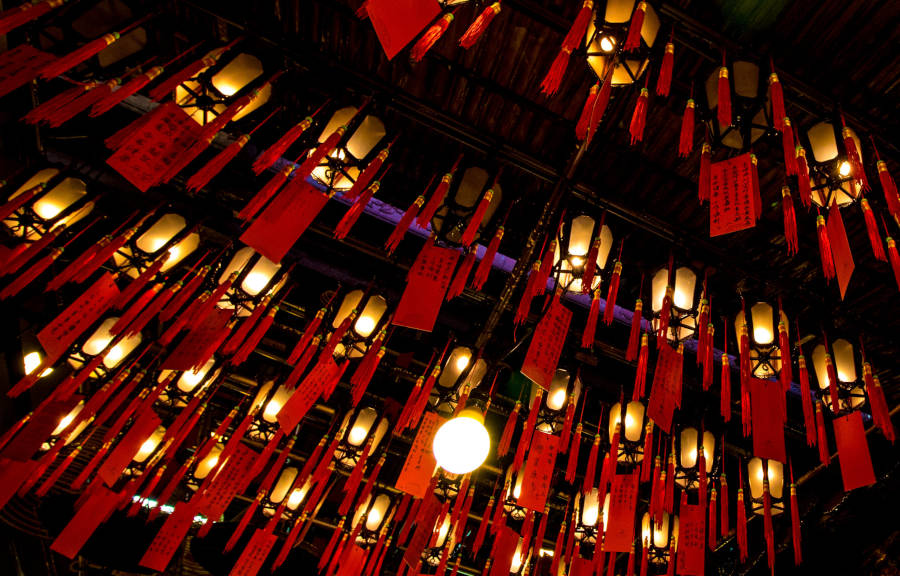
Kwan Tai, the God of War, was a well-respected general back in the Three Kingdoms period known for his loyalty, courage, and righteousness. Today, he is recognized as a patron representing a form of brotherhood. He’s typically worshipped alongside Man Cheong, the god of culture and literature, at Man Mo temples as both gods are symbolic of success, be it in academia or civil duty. During this Hong Kong festival, people visit temples to worship him, light incense sticks, and make offerings in the form of roast meats and wine. As long as one keeps their sense of honour and brotherhood, Kwan Tai will surely send his blessings.
Qixi Festival (七夕) — 10 August 2024
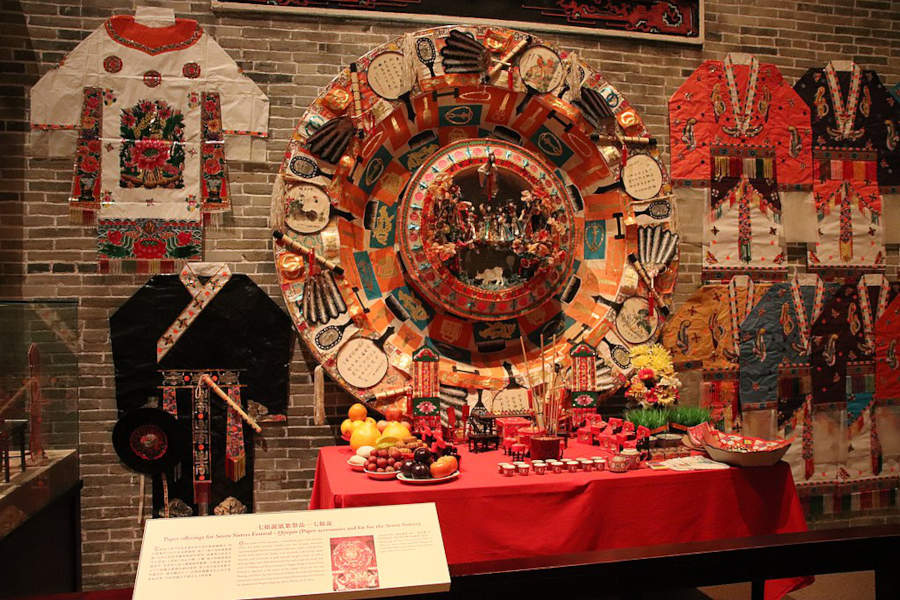
Also known as a second, informal Chinese Valentine’s Day, Qixi Festival, also called Double Seventh Festival or Seven Sisters Festival, is celebrated on the seventh day of the seventh lunar month. The festival derives from a Romeo and Juliet-like love story of a mortal cowherd falling in love with a divine weaver girl. The girl’s mother, who happened to be the Heavenly Queen Mother, wasn’t happy with their union and took measures to divide the two. However, love prevailed and the lovers meet in the sky in the form of the Summer Triangle constellation on the seventh day of the seventh month in the lunar calendar. On this day, women make offerings to the divine girl and participate in needlework competitions as needle working was seen as a major pastime activity for women. Some people also head to Lovers’ Rock in Wan Chai to make wishes and offerings in hopes of soon finding their significant other.
Hungry Ghost Festival (盂蘭節) — 18 August 2024
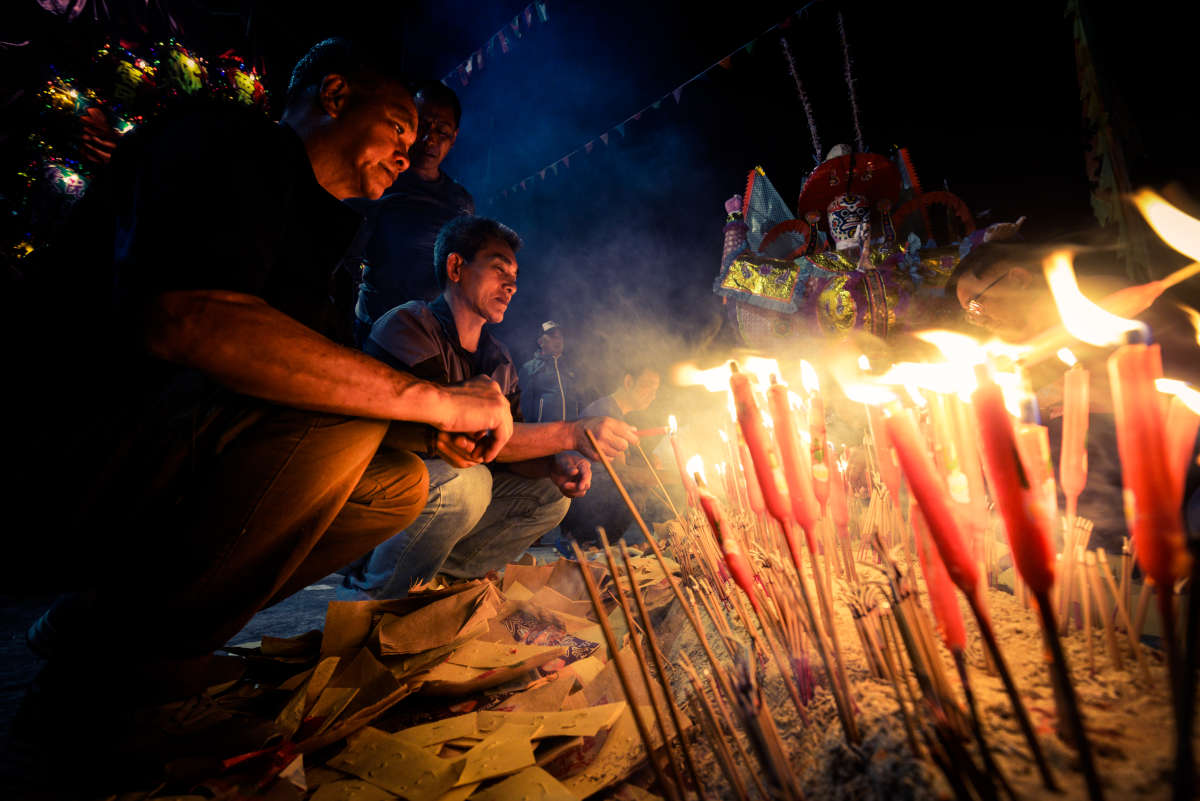
Hungry Ghost Festival is a month-long festivity in which the gates of hell open and spirits are believed to lurk around town. Many locals burn incense paper as offerings to the dead outside their homes to safeguard themselves and their families from misfortune. Following superstition, locals who believe in the existence of the ‘other side’ tend to stay home on this night to avoid any bad luck. An important point to take note of is to prevent bad luck by keeping your vibration high and positive during this month, as ghosts are attracted to negative energy.
Mid-Autumn Festival (中秋節) — 17 September 2024
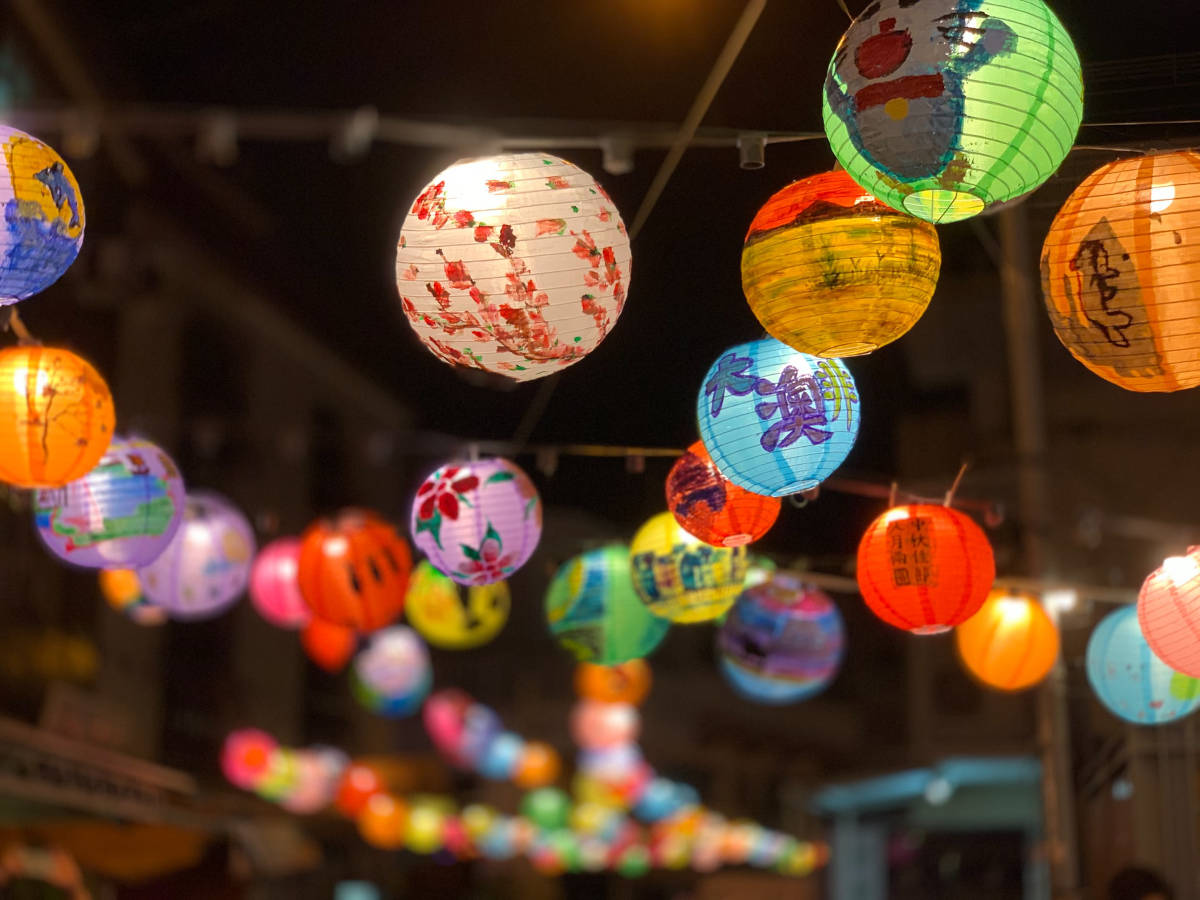
Also known as the Lantern or Moon Festival, Mid-Autumn Festival originated from the Tang Dynasty when emperors would celebrate the end of a harvest season by hosting a feast in their palace. Legend also has it that Chang’e, goddess of the moon, lives on the bright heavenly body, and that those who worship her may have their wishes fulfilled. Similar to Thanksgiving in the western world, people reunite with families over a feast and give thanks for their blessings. Eating mooncakes with a lucky egg yolk in the centre and lighting paper lanterns under the beautifully lit moon are Mid-Autumn’s most significant traditions.
Monkey King Festival (齊天大聖千秋) — 18 September 2024
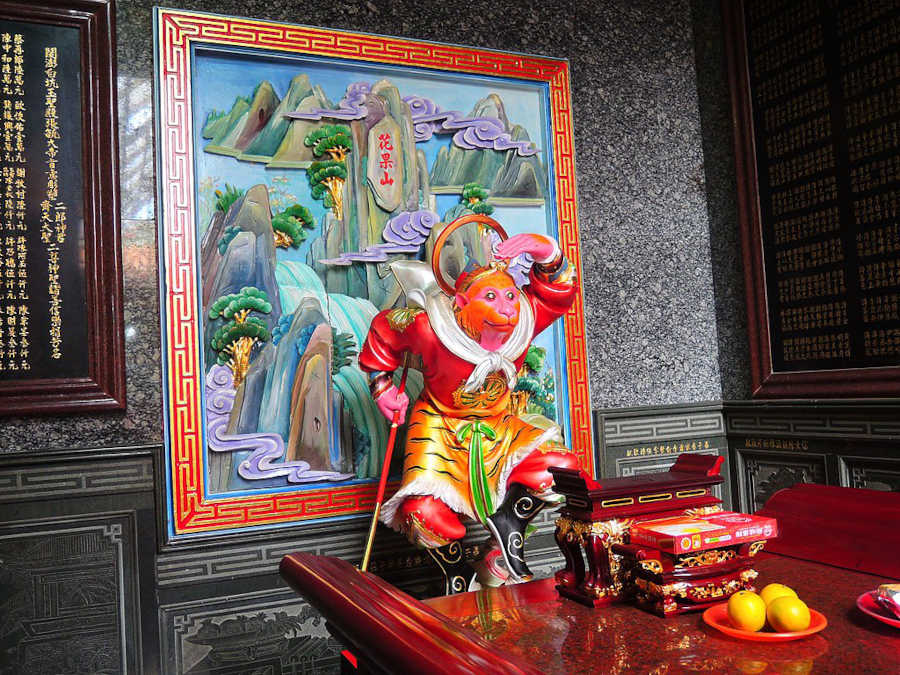
A popular character in Journey to the West, one of the Four Great Classical Novels in the Chinese canon, the monkey king, named Sun Wukong, was a mischievous, yet loveable, creature getting into all sorts of trouble. However, it was the powerful monkey’s travels to India escorting Buddha that earned him immortality and a spot in the Buddhist world. It’s the monkey god’s cleverness, drive to succeed, and mindset to push through life’s obstacles that make him widely praised during Monkey King Festival. People, especially those from Hong Kong’s Chiu Chow community, gather at his temple in Kowloon to burn incense and make offerings. It’s also said that some people, notably monks, walk on hot coal to honour the Monkey King.
Birthday of Confucius (孔子誕) — 28 September 2024
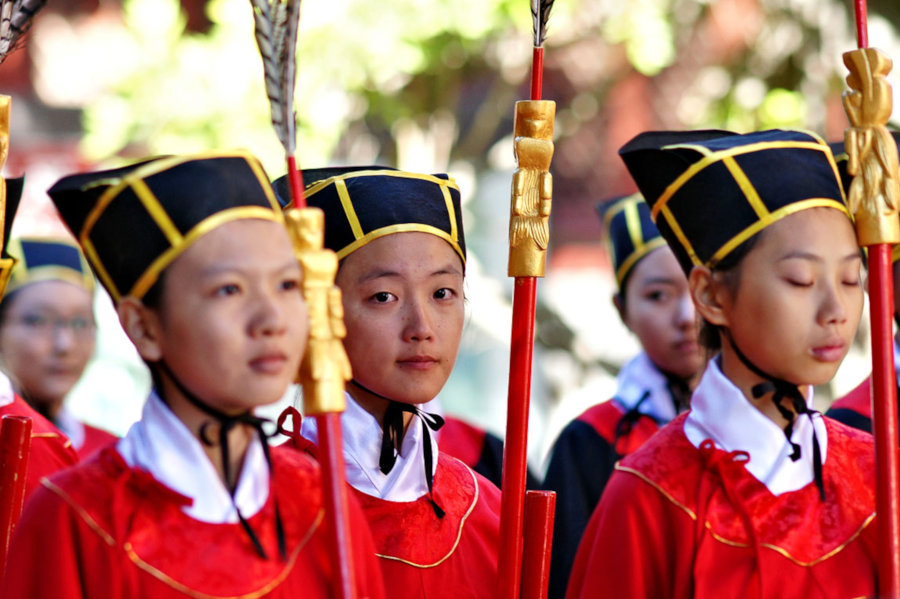
Confucius’ birthday is also known as Teacher’s Day in Taiwan and China. A revered Chinese social philosopher and scholar, Confucius devoted his life to teaching students no matter what background they came from. He taught the values of harmony, peace, and simplicity, and the importance of having a set of morals and compassion for others. The Five Virtues he instilled are Jen (goodwill), Yi (righteousness), Li (conduct), Chih (wisdom), and Hsin (faithfulness). On this day, teachers are honoured by their students with special notes or small gifts that represent a token of their appreciation. There is no temple in Hong Kong dedicated to Confucius, so the Confucian Academy usually rents a venue to hold a ceremony in honour of his birthday.
Chung Yeung Festival (重陽節) — 11 October 2024
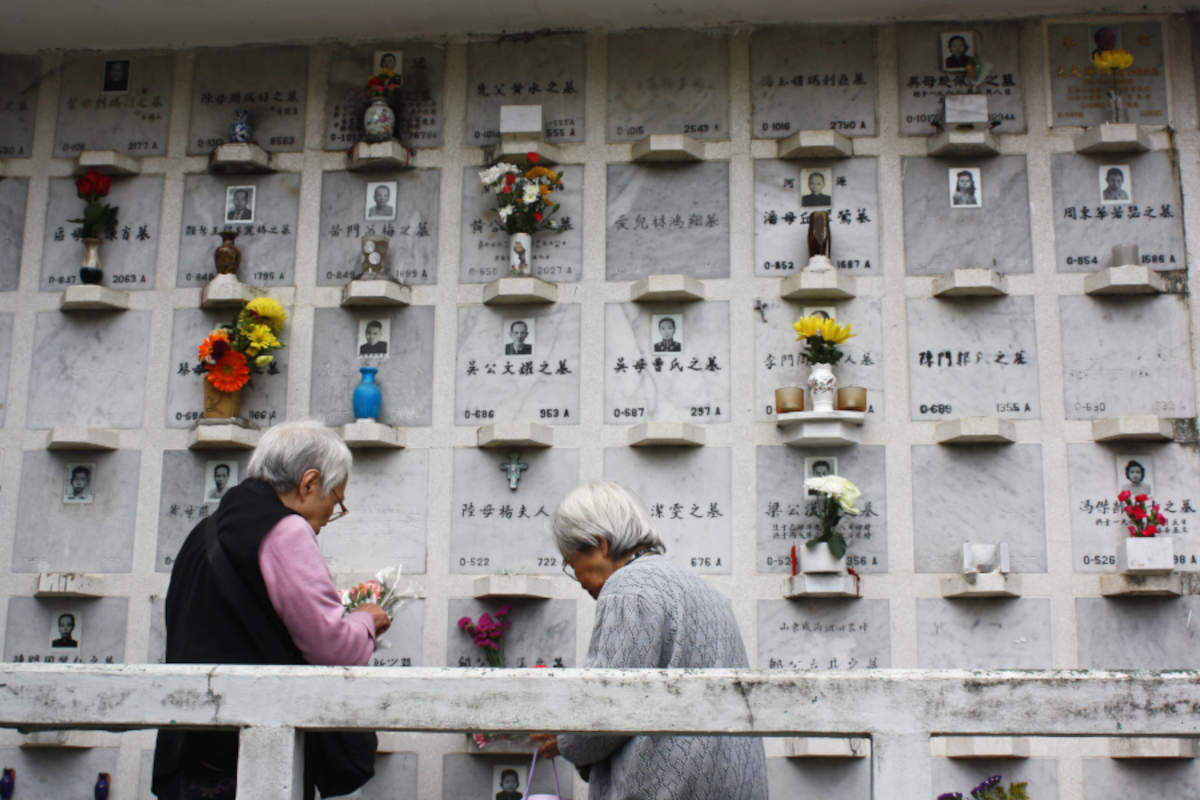
Also known as Double Ninth Festival, Chung Yeung Festival honours those who’ve passed before us. Legend has it that a villager received a message from a divine being telling him to take his family to the highest ground to escape chaos that was to come his village’s way. He heeded the message and also used chrysanthemum tea to kill the demon, saving his family. Nowadays, families climb to cemeteries (which are mostly set on hills in Hong Kong) to pay respect to ancestors and drive away danger, eat cakes (the Cantonese word for ‘cake’, gou, is pronounced the same as the word for ‘high’), and drink chrysanthemum tea. It’s believed that the higher families climb, the more good luck they’ll have.
Winter Solstice Festival (冬至) — 21 December 2024
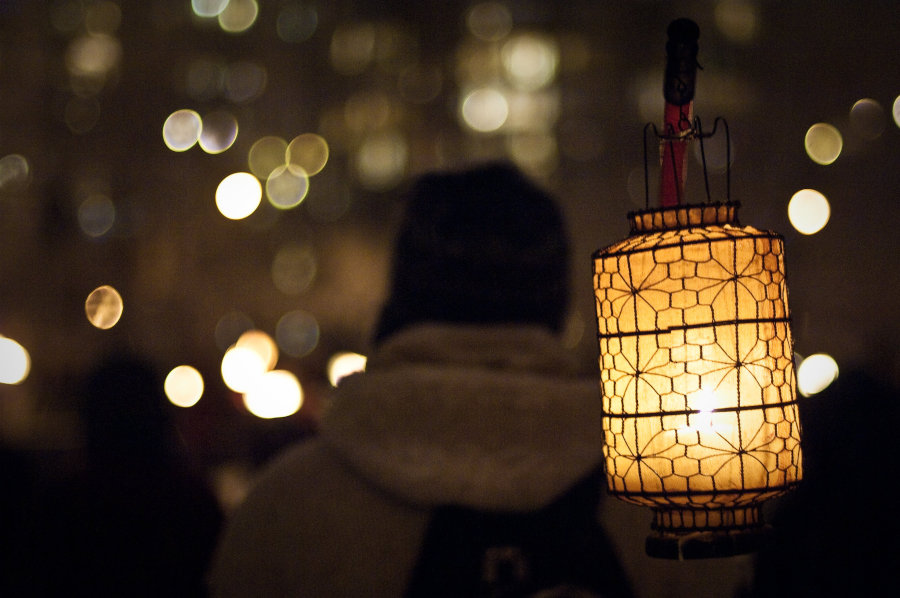
The Winter Solstice Festival dates back to the Han Dynasty. It marks the first day of winter and celebrates the rebirth of the sun. This rebirth signifies the end of past pain and tumultuous times and the beginning of something bright and new. It’s the shortest day (or longest night) of the year, but after this day, positivity is expected to come into people’s lives. Traditions that take place on this day include cozying up to family gatherings over a home-cooked meal (i.e. dumplings and sweet glutinous rice balls in ginger soup), lighting lanterns, setting new intentions, and worshipping ancestors.
Header image credits: Laurentiu Morariu via Flickr




Add comment